Iran Behind Cyber Attack On Charlie Hebdo: Microsoft
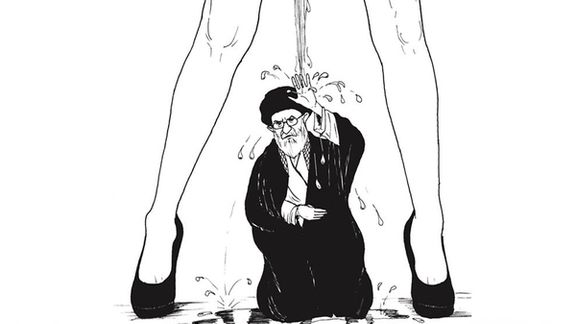
Security researchers at Microsoft say an Iranian regime-backed hacking team apparently stole and leaked data from the French satirical magazine Charlie Hebdo.

Security researchers at Microsoft say an Iranian regime-backed hacking team apparently stole and leaked data from the French satirical magazine Charlie Hebdo.
Clint Watts, the general manager of Microsoft's Digital Threat Analysis Center, said Friday that the hackers, who called themselves "Holy Souls," were from Iranian cybersecurity firm Emennet Pasargad.
Emennet Pasargad was the employer of two Iranians, Mohammad Hosein Musa Kazemi and Sajjad Kashian, who were indicted by the United States Justice Department in November 2021.
They allegedly conducted a cyber campaign "to intimidate and influence American voters, and otherwise undermine voter confidence and sow discord" during the 2020 US presidential election.
In early January Holy Souls announced they had obtained the personal information of more than 200,000 Charlie Hebdo customers and published a sample of the data as proof.
It came after the magazine published a series of cartoons that negatively depicted Iran's Supreme Leader Ayatollah Khamenei. The caricatures were part of a media campaign that Charlie Hebdo said was intended to support anti-government protests in Iran that swept the country following the death in custody of Mahsa Amini in mid-September.
Iran publicly vowed an "effective response" to the "insulting" cartoons, and summoned the French envoy in Tehran, while also ending activities of the French Institute of Research in Iran and saying it was re-evaluating France's cultural activities in the country.
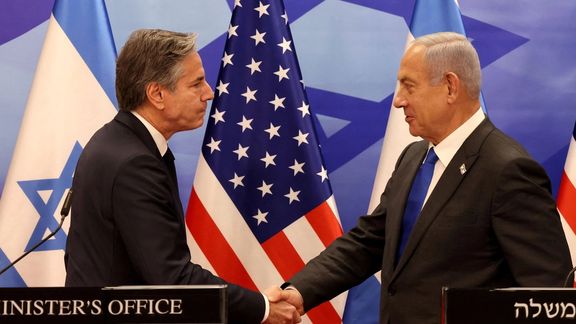
Israeli and American officials have reportedly made a deal to cooperate over the Islamic Republic and Saudi Arabia in exchange for Israel helping to keep Palestinian territories calm.
According to a column by Israeli newspaper Yedioth Ahronoth on Friday, senior officials of the Biden administration asked to see if Prime Minister Benjamin Netanyahu would agree to keep its conduct within the red lines in Palestinian territories outlined by the US government in exchange for cooperation over Iran and the promotion of normalization with Saudi Arabia.
The report claimed that US Secretary of State Antony Blinken, National Security Advisor Jake Sullivan, and Director of the Central Intelligence Agency (CIA) William J. Burns have traveled to Israel in the past few days to make the deal.
As per the purported deal, “the United States offers Israel broad cooperation in covert and semi-covert operations inside Iran -- not war,” and if the Islamic Republic gets closer to building a nuclear bomb, Washington will consider further moves.
In exchange for American cooperation over Iran and Saudi Arabia, Netanyahu will keep the calm in the area, maintain the status quo on al-Aqsa Mosque, strengthen the Palestinian Authority and curb the settlements.
The terms of the agreement seem vague, and Netanyahu’s office also denied such a deal. However, it added Netanyahu did not agree to any conditions, but he would uphold such policies because they were the promises he made for his election campaign.
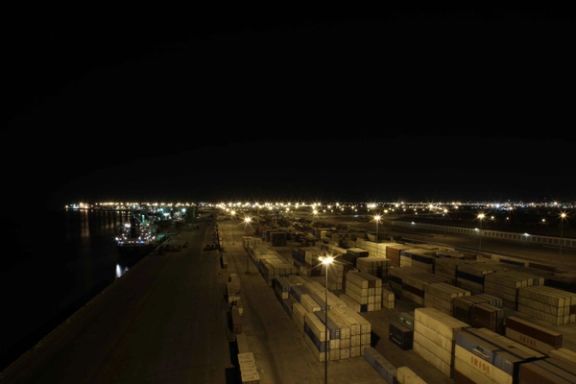
Iran’s Customs Administration says at least eight million tons of essential goods have been piling up on ships anchored off the country's southern ports apparently mainly due to payment issues.
According to a report by Tasnim news agency, affiliated with the Revolutionary Guard, the deputy head of the Customs Administration has recently said that ships are stranded at ports – mainly at Bandar-e Emam Khomeyni (Imam Khomeini port) in the Khuzestan province and Bandar Abbas in Hormozgan province -- waiting to unload their cargo.
The official said that the goods, a large part of which are food and animal feed, cannot be unloaded also due to a lack of permits necessary for them to be cleared. Some of the essential goods need three or four permits from the Ministry of Health, Standard organization and Plant Protection Organization, which oversees the quarantine processes.
He said that about 1,800 to 2,000 trucks are being loaded every day and transferred from Imam Khomeini port, but the number of the trucks does not seem to be enough to avoid the blockage.
But the main impediment for clearance of these goods has been lack of foreign currency for a long time. Importers need to receive US dollars or other foreign currencies from the government to pay suppliers before the ships would anchor at the ports and discharge their cargos. Iran is currently in a crisis for not having enough foreign currency and the US dollar has reached a historic high. One dollar can buy 450,000 Iranian rials, while five years ago the exchange rate was around 35,000.
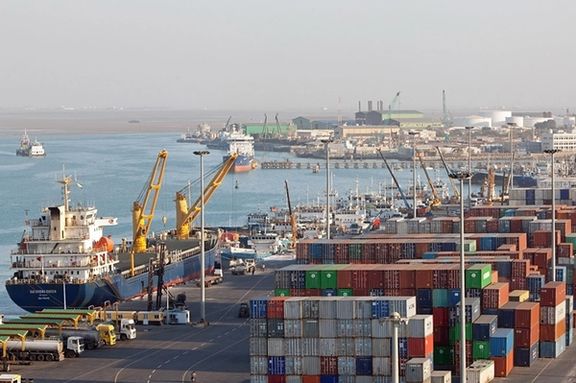
The ships have to declare their goods first, and then the customs administration should remove the obstacles in the way of their clearance within seven days, but the process is not working smoothly. But the suppliers of the goods await payment first before ordering the ships to dock.
Since the government has removed the subsidy in the form of cheap dollars for the essential goods, many importers face difficulties providing the needed foreign currency.
In January, Iran’s judiciary chief Gholam Hossein Mohseni Ejei said tens of ships have arrived in territorial waters of the country, but the Islamic Republic cannot unload them therefore the country must pay fines for the delay in discharging cargos. The delay in payments is the main reason that has disrupted flows of goods into the country.
Most ships should receive full payment right before they dock at a port to unload their cargo. If payment is not arranged, the ships wait off the coast. “Some of these ships are paid $25,000-65,000 per day as demurrage,” noted Ejei.
Some of these goods, which are not unloaded, added Ejei, “are damaged due to long waits by the ships, but these goods are necessary for the country,” he underlined.
Iran's currency has dropped by 30 percent since September and both the government and private importers face a financial crunch.
Food is exempt from the US sanctions on Iran over its nuclear program, but the impact of the sanctions on Iran's financial system have created complex payment arrangements with international companies.
Reuters reported on December 21, that dozens of merchant ships with grains and sugar are stuck outside Iranian ports after weeks of delays in payment.
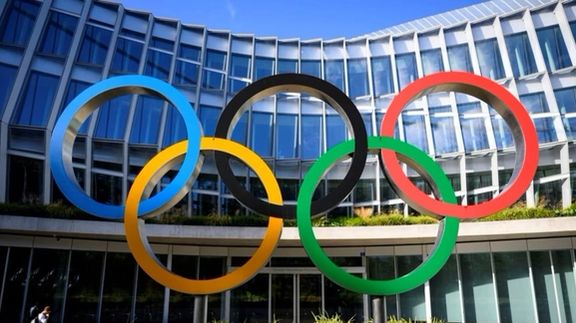
The International Olympic Committee has relayed its serious concerns to the Iranian Olympics committee regarding the safety of athletes and discrimination in sports.
In a press release issued February 2, the IOC said a meeting was held with the head of Iran’s national Olympics committee where “intensive discussions took place,” and questions asked about the Iranian NOC protecting athletes and ensuring there is no discrimination “vis-à-vis any other athletes.”
The issue of discrimination refers to the Islamic Republic government forbidding athletes to compete against their Israeli peers, often by feigning sickness or injury and throwing games.
Many Iranian athletes were arrested during recent antigovernment protests and face serious charges, often brought by security and intelligence outfits without a fair chance of defense.
The IOC also raised the issue of government rules for athletes to provide financial guarantees when they are sent to compete abroad. More than 30 Iranian athletes have defected in the past four years and the government wants to penalize those who might choose to stay abroad.
“The IOC President stressed the importance of non-discrimination in every aspect and insisted on the full observance of the Olympic Charter by the NOC,” the international committee said in its release.
The Iranian side “made clear commitments to abide by the rules and the Olympic Charter, IOC said. However, sports is under the direct control of the government, and in many instances, the Revolutionary Guard and the Iranian Olympics committee would be hardly able to deliver its promises.
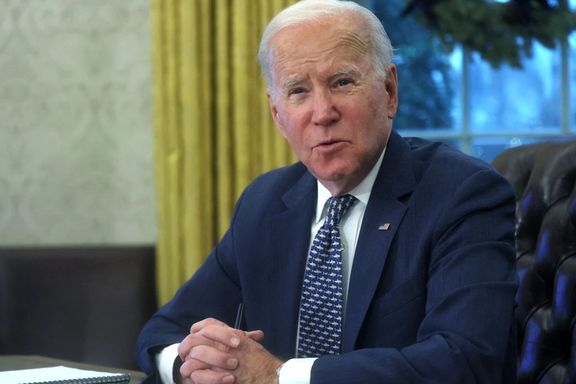
As regional and Western countries are bolstering their ties over Iraq, US President Joe Biden Thursday talked with Prime Minister Mohammed Shia’ al-Sudani.
According to a readout of the call by the White House, Biden reaffirmed Washington’s commitment to Iraq and consulted on regional developments with the Iraqi premier.
“The President reaffirmed the US commitment to the Strategic Framework Agreement with Iraq and commended the Prime Minister’s efforts to strengthen Iraq’s sovereignty and independence,” read the statement.
They also discussed al-Sudani’s economic agenda and plans to ensure that Iraq’s economy is delivering for the Iraqi people, policies the US is prepared to fully endorse, especially to curb the influence of the Islamic Republic in the country.
Biden welcomed the upcoming visit by Iraqi Foreign Minister Fuad Hussein and an accompanying delegation next week to Washington to further discuss these programs.
The US president took the opportunity of King Abdullah of Jordan’s visit to the White House to invite him to join the call, in which King Abdullah stressed Jordan’s support for Iraq, including through joint strategic infrastructure projects.
On Thursday, Saudi Arabia’s Foreign Minister Prince Faisal bin Farhan al Saud visited Iraq, affirming that economic relations with Iraq were developing significantly. Bin Farhan made the statement during a joint press conference with Hussein.
Earlier in the week, French President Emmanuel Macron met with Iraq Prime Minister Mohammed Shia Al-Sudani, in which the two signed a set of strategic agreements meant to boost Iraq’s economic cooperation with the European country. Macron launched the Baghdad Conference for Cooperation and Partnership in 2021, which aims at strengthening regional stability by involving Iraq and enhancing its role.
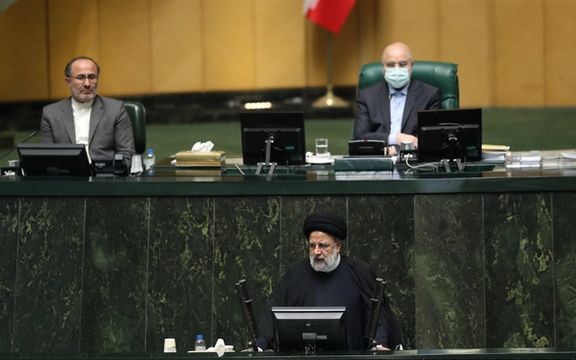
Iranian media say several lawmakers are mulling the idea of questioning President Ebrahim Raisi at the parliament amid the country’s political and economic crises.
Moderate Aftab News website reported that the lawmakers were going around in the parliament (Majles) on January 31, gathering signatures in support of the motion. However, those who support the idea do their best to conceal their identity before the motion is tabled at the Majles.
The website said that the lawmakers appear to fear reactions by Raisi and other ultraconservatives to what they are doing. Nonetheless, their names cannot be kept a secret for long. Aftab News said that they even refused to talk to reporters about the motion that signifies their dissatisfaction about Raisi's performance.
Others at the Majles, including hardliner Mohsen Pirhadi told Aftab News that questioning the president about his performance is not wrong and is part of the parliament's supervisory mandate.
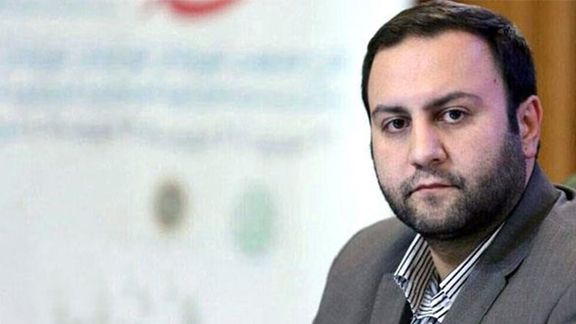
It appears that some cabinet ministers' manoeuvres to evade impeachment pushed the President into the questioning trap. After all, Raisi was the one who did his best to prevent the impeachments regardless of lawmakers' complaints about several cabinet ministers' inefficiency, wrote Aftab News.
Although lawmakers appear to be more determined this time to question Raisi, the website said that it is unlikely most deputies would vote for the motion. Meanwhile, Lawmaker Ahmad Alireza Beigi said he does not believe that Majles would take such a step. However, he said that first, cabinet ministers should be impeached and then if the plan for impeachment does not go ahead smoothly, the lawmakers can question Raisi.
Meanwhile, a Khabar Online website report on February 1 said lawmakers are planning to question Raisi on 6 grounds. According to the website, this is the second call for questioning Raisi during the past 8 months. The first time, only two lawmakers signed the motion. According to the law, at least a quarter of the 290 lawmakers at the Majles need to sign a questioning motion if it is going to go any further.
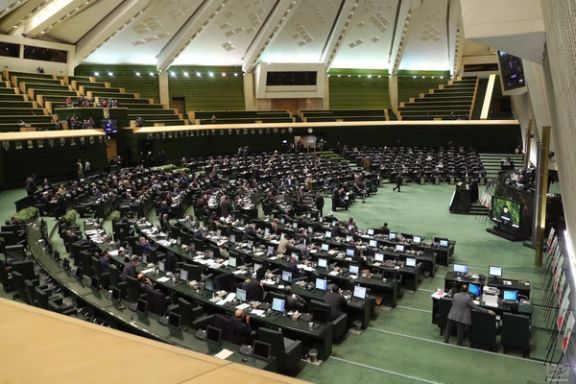
According to Khabar Online, if the motion progresses this time, the lawmakers will ask questions about "the chaotic situation of the forex market and failing to issue electronic coupons to provide essential commodities to the nation."
Khabar Online quoted one of the unnamed lawmakers who was collecting signatures in support of the motion as having said some of his peers have welcomed the idea of questioning the President, but some others are too scared to sign the request for the motion."
In April last year, Lawmaker Mostafa Hosseini Ghotbabadi had even said that lawmakers have called for designating the president as incompetent, a motion that kicked out Iran's first President Abolhassan Banisadr in June 1981.
Raisi has been most recently criticized for feeding the nation with false information and fabricated statistics about his achievements during a televised interview earlier this week. During the past months the figures he presented about inflation, employment and economic growth were seriously challenged by the media and even by hardliner newspapers published by the IRGC.
The media have been questioning Raisi's performance in the areas of housing, employment and controlling prices. The most important point made against Raisi's figures is that while the official inflation rate in January was 51 percent, He still insists that it is no higher than 40 percent.
Iran’s currency, rial has fallen to 450,000 to the US dollar speeding up inflation that is expected soon to surpass the official rate of 51 percent. All government attempts to manipulate the forex market have so far failed.